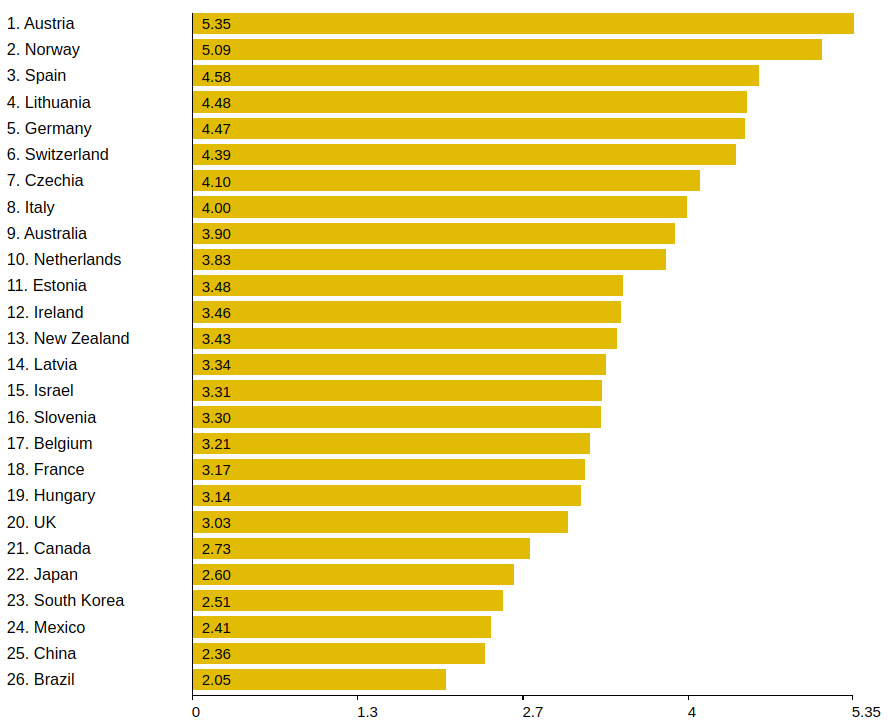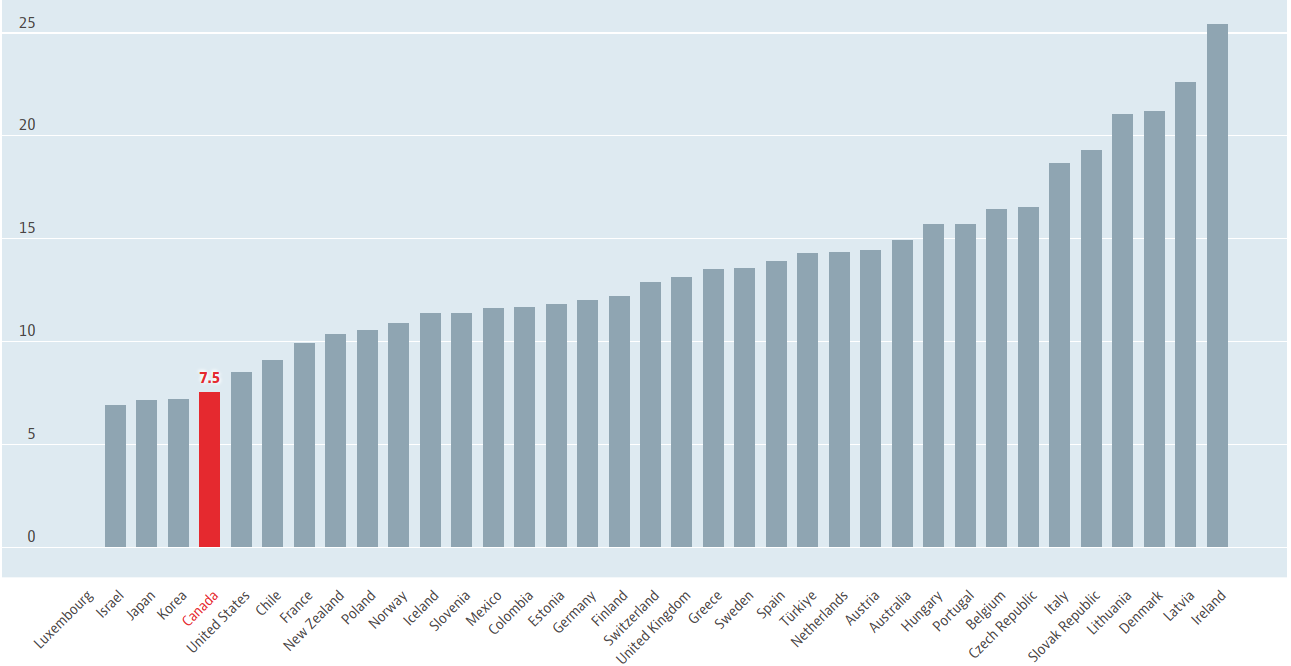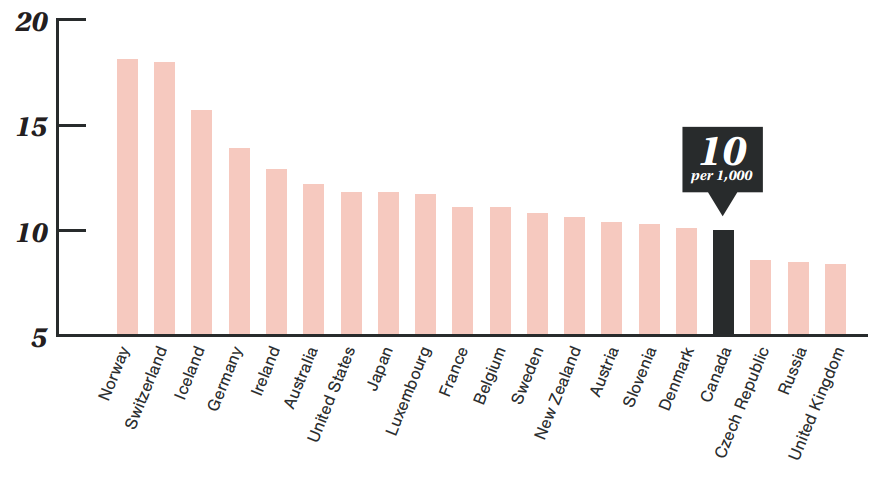Will Privatization Save Our Healthcare System?
There are better, more direct ways to address our problem
Last month, the Ford government’s announcement to expand the use of private providers in our healthcare system caused an uproar.
Everyone seems to have a strong opinion on this issue, one way or another.
Many Canadians are proud of our publicly funded healthcare system and worry that this proposed privatization is the first step down a “slippery slope”. No amount of privatization is acceptable; it is seen as a threat to universal healthcare, something that we cherish.
Others think that our system is broken beyond repair. Doug Ford falls into this camp:
With all of the crazy stories that have come out over the last few years, it's hard to blame anyone for losing hope in our public healthcare system. We’ve been hearing for a while now that it is on the verge of collapse. Some experts think it’s time for us to accept that collapse has already happened.
My wife works in a hospital. Through her and her friends, I hear a lot of first-hand stories about how bad things have become. If you’ve been lucky enough to not have needed access to any healthcare services recently, you’ll probably find these stories hard to believe.
I spoke to a nurse who, at one point during a recent shift, was responsible for 20 patients. Nurses typically care for just 4 patients at once. Similarly, I heard from one physician working in a hospital who was responsible for seeing 60 patients in a single day, rather than the typical workload of 15-20 patients. One can only imagine the sort of care these patients are getting.
As if “hallway medicine” wasn’t bad enough, now “waiting room medicine” is a thing. A doctor recently told me that they have been performing procedures in the waiting room, with hospital staff holding a sheet around patients for privacy.
Physicians are going to need to start working on their “chairside” manner along with their bedside manner. My wife had a patient admitted to her hospital who spent multiple days sitting up in a chair because they were out of beds.
If this isn’t collapse, then I’m not sure what is.
Today we’ll discuss why things have gotten so bad, which will allow us to understand whether or not privatization is the best solution.
We’ll focus on Ontario since this is where I live and am most familiar with, but the same principles apply across the country.
Our healthcare system is drastically understaffed
It’s not hard to find evidence of our physician shortage. There are 6 million Canadians that can’t find a family doctor. Ontario ranks seventh among Canadian provinces in terms of physicians per capita. There are 1.8 million people without a family doctor in Ontario alone.
We certainly don’t have a lack of people who want to become doctors. Competition for Canadian medical school spots is fierce; it’s become extraordinarily hard to get in. These days a GPA of 3.9/4.0 doesn’t guarantee you anything.
We need many more physicians, yet it is extremely difficult to get into medical school, what’s going on here?
Well, the bottleneck is that we haven’t built adequate capacity to train doctors.
This chart shows us the number of medical school graduates per 100k residents for countries in the OECD. As you can see, Canada is near the bottom. This problem is particularly acute in Ontario, which has far fewer medical school spots per capita available to its residents, compared to the rest of Canada.
Doctors are not the only healthcare professionals that we need more of, our nurse shortage might be even worse.
Here’s another chart showing Canada falling towards the bottom of the OECD, this time in terms of nurses per 1,000 residents.
The Ford government exacerbated this issue by capping nurses’ wages, adding financial strains to an already stressful career. Nurses are now leaving Canada at a record rate.
The situation is particularly dire in Ontario, which has 20% fewer nurses per capita than the rest of the country. 70% of Ontario nurses say they can’t provide adequate care due to insufficient time and resources, and nearly 50% are considering leaving the profession.
Healthcare infrastructure hasn’t kept up with our growing population
Ontario’s population has been steadily growing for decades now. Obviously, a larger population requires more hospital capacity. Somehow, our Government didn’t plan for this.
I was shocked to learn that in 2019 Ontario had roughly the same number of hospital beds as in the year 2000, and far fewer than in 1990.
Things start to look really bad when you compare us to the rest of the developed world.
Note that this issue is not isolated to Ontario. Canada as a whole falls toward the bottom of this list.
Insufficient staffing and infrastructure are the results of chronic underfunding
This underfunding of Ontario’s healthcare system has been going on for many years.
Compared to the rest of Canada, Ontario spends the least on healthcare, and has, by nearly every measure, the worst-performing healthcare system in the country. This suggests an obvious cause for Ontario’s issues: you get what you pay for, and Ontario hasn’t paid up.
It takes money to construct hospitals, educate workers, and pay staff. More nurses, doctors, and hospitals would go a long way toward solving many of our healthcare woes, including lack of access, long wait times, and even hallway medicine. But we haven’t made the necessary investments to build up capacity within our healthcare system.
Privatization is not the best solution to an underfunded public system
Imagine your house is falling apart because you hadn’t adequately cared for it. The roof is leaky due to missing shingles, and it’s cold and dark inside because of a broken window and blown lightbulbs.
A useful response to this situation would be to recognize that these issues are the result of a lack of time and resources spent on your house, and then make the necessary investments to fix things. A less useful response is to panic and sell or tear down the house. But this is exactly the sort of radical logic the Ford government is using by turning to private healthcare as a solution to our current predicament.
The conclusion we should draw from the present state of our healthcare system is not that “public healthcare doesn’t work, so we should give up on it”. Instead, we need to recognize that our healthcare system is drastically underfunded and that this is something we can fix.
Doug Ford is right that, with regard to our healthcare system, the status quo is no longer acceptable. But, if our problem is an underfunded system, is privatization really the best solution? It seems much more natural, safe, and straightforward to simply provide more funding to the public system.
We don’t need privatization to fix our healthcare system, we just need to prioritize funding it adequately. Additionally, we need to start increasing investments in things like child care, housing, and poverty reduction, which help to keep people healthy, reducing the burden placed on our healthcare system.
Money to better fund our public healthcare system already exists
Since 2018, the Ford government has implemented about two dozen tax changes that reduced Ontario’s annual provincial revenue by at least $8.2 billion per year. This is a staggering amount of lost revenue that is approximately equal to the amount of additional funding Ontario needs to bring healthcare spending up to the same level as the rest of Canada.
Government tax cuts are generally rationalized as an investment for the future. The theory is that lower taxes will result in economic growth. Any revenue the government loses now will be more than made up for by future revenues collected from a bigger, stronger economy. This strategy is appropriate at certain times. But should we really be making these investments for the future now, as our healthcare system collapses?
Economic growth, alone, will not solve all our problems
As we’ve discussed previously, we tend to believe in an idea that John F. Kennedy popularized in 1963: "A rising tide lifts all boats". Supposedly, a stronger economy benefits everyone since we all become richer as the economy grows. We make sacrifices, like cutting taxes to the point where we can no longer adequately fund public services, in the name of growth, with the hope that it will all pay off one day in the future.
But is it smart to fully rely on “growing” our way out of this problem?
In recent decades, economic growth has not resulted in all that we thought it would. Canada’s growing economy failed to produce higher wages for the average Canadian (after adjusting for the rising cost of living), and most of the wealth we’ve created has gone to the richest Canadians.
It doesn’t seem that economic growth will, on its own, deliver all that was promised; we need to shift our mentality accordingly. We can’t continue to blindly believe that a bigger economy in the future will somehow magically solve all of our problems. It’s not that we don’t need economic growth, but we do need to start giving some thought to how we can translate this growth into widespread progress.
If we get creative, we can make progress toward a better public healthcare system more quickly. Our economy creates a lot of money that could help fund our healthcare system, it’s just that it is being hoarded by the super-wealthy. Canadian billionaires increased their wealth by roughly $111 billion during the pandemic. With a national annual wealth tax on the richest 1% of Canadians and a windfall tax for major corporations, we could raise more than $20 billion a year. Now that would build a lot of hospitals!
My hope is that this article can help us all get onto the same page about the source of the ongoing dysfunction within our healthcare system. This is the first step toward change. It’s much easier to make progress when we agree on the root of the problem and the best solution.
That’s all for this time.
I would love to hear any thoughts, comments, or concerns you might have about all of this. Feel free to reach out!
Thanks for reading,
Kareem










I appreciate the comments that you are making but I feel the problem has been with the policy of the federal government to continue immigration at a level that is beyond the economy‘s ability to service. If we were to make some changes such as preventing immigration due to Medical immigration that is allowing in people with existing conditions we would not see the same growth of demand in the medical sector. The fact that our young offspring are unable to finance residences due to the massive increase in cost is due to the inability of the economy to create housing